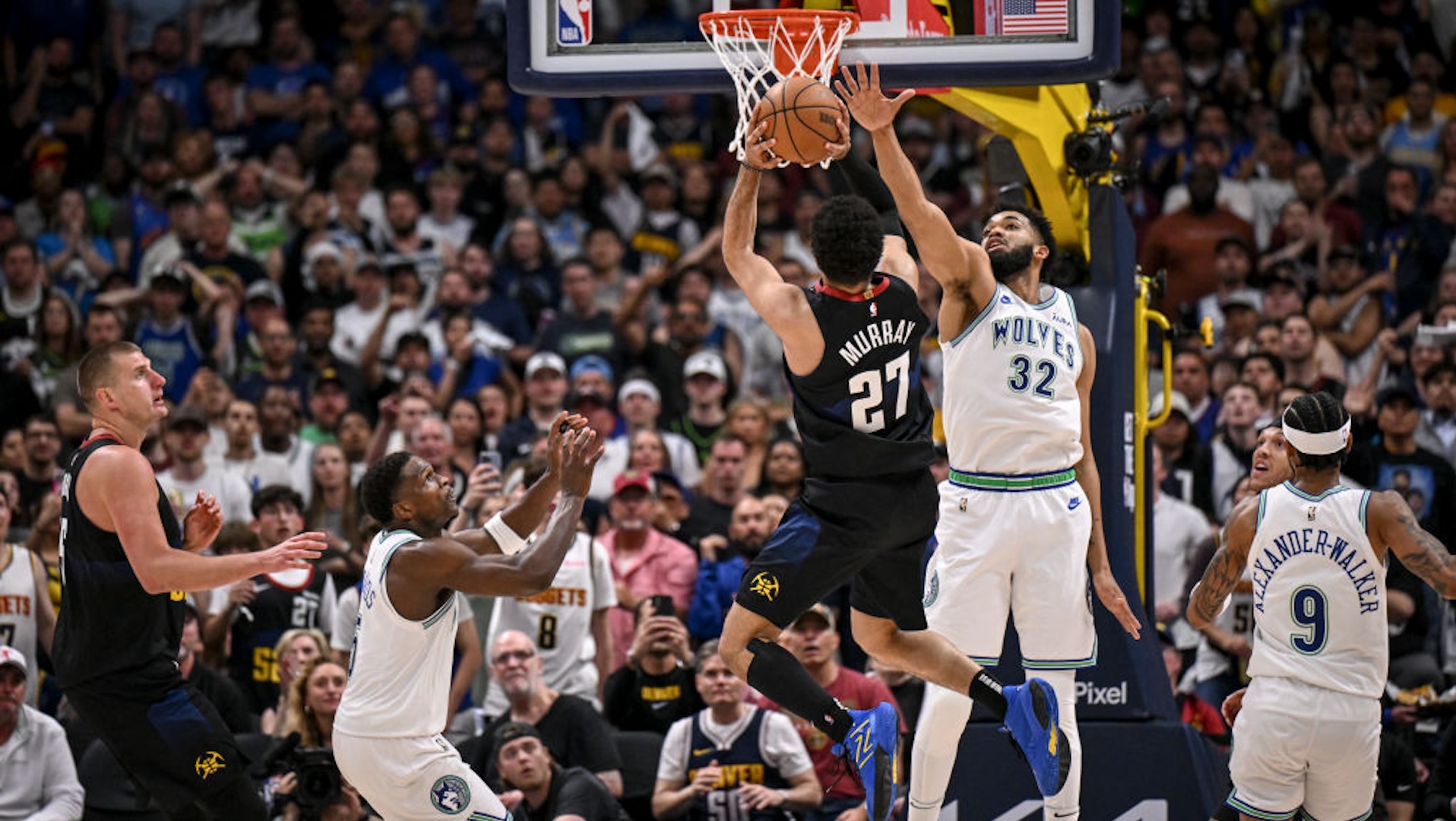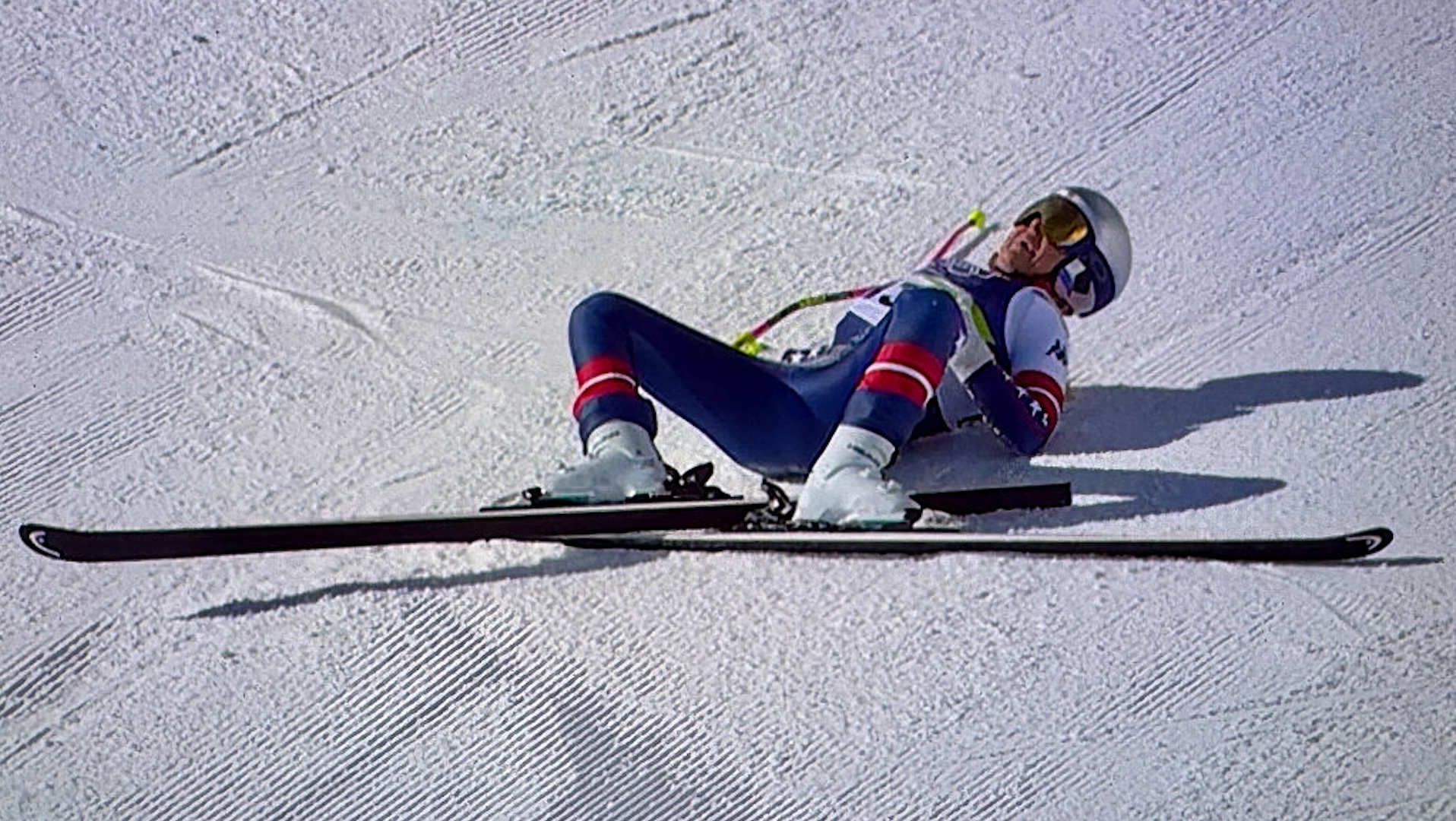In a seven-game series like the one the Nuggets and Timberwolves just finished, it can be hard to keep track of what is and isn't true about each team. Both teams lost multiple games on their home floor; both teams received and dished out humiliating blowouts; both teams looked at various points like they would never win another game. It's hard to sift through all of that and come up with a simple reason for why the Wolves ultimately advanced following last night's 98-90 Game 7 victory, but here's an attempt: Minnesota's defense is incredible.
The modern NBA has trained fans to understand that no lead is safe, but what we're supposed to fear is a deficit-erasing barrage of three-pointers. When the Nuggets took a 20-point lead early in the third quarter, it was hard to imagine where such a scoring burst from the Timberwolves would come from. Up to that point, the Timberwolves were 4-of-17 from three-point range, and their star player, Anthony Edwards, had four measly points on 1-of-7 shooting. By the time the Timberwolves had completed their comeback, neither of those trends had materially changed. Edwards finished the game having made just six of his 24 shots, and the Wolves shot 29 percent from deep. What did change from the beginning of the third quarter to the end of the fourth was the Wolves' defensive intensity.
Announcers love to point out a shooter who is struggling and say something like, "If he can just see one go through, he could get hot." The second half of last night's game left me with the impression that the same wisdom can apply in the opposite direction: The Timberwolves' defense just needed to see a few misses. After going up 58-38, the Nuggets' next two possessions ended with Kentavious Caldwell-Pope and Michael Porter Jr. each missing wide-open jumpers from the foul line. Jokic followed that up by missing a free throw, Jamal Murray missed a step-back three, and suddenly the Wolves could smell the blood in the air. Gobert swallowed a Murray layup at the rim, which led to an Edwards runout and a Denver timeout. Minnesota had cut the lead to 12, and from that point forward the Nuggets would not be allowed to breathe. From the 7:23 mark in the third quarter to the final buzzer, the Nuggets shot 37 percent from the field, turned the ball over five times, and scored 31 points.
Announcers also like to talk about how a particularly heroic shot or scoring run can sap the confidence from an opponent. Those effects are tough to quantify, given that we cannot see inside of a player's head as the game is going on. Physical effects are easier to identify, and as Game 7 wound down it became clear that the Wolves' renewed defensive focus was sapping the Nuggets of their strength. All those minutes Murray spent getting bumped and hounded around screens by Minnesota's long-armed defenders, all that time Jokic spent throwing his shoulder into Karl-Anthony Towns's chest and competing with multiple seven-footers for rebounds—it all started to add up. Jokic, who was only allowed to rest for one minute in Game 7, spent the second half getting beat to rebounds and having his screens easily bypassed. Murray couldn't find room to shoot, and the Nuggets lost their composure. Denver got out-rebounded 22-12 over the final 19:23 of the game, and the Wolves grabbed six of those rebounds on the offensive glass. When Towns flew in for a put-back dagger with 41 seconds left, he did so against a physically defeated team.
Karl-Anthony Towns putback dunk OH MY GOD pic.twitter.com/r6IfvutZN7
— Timberwolves Clips (@WolvesClips) May 20, 2024
It's clear now, in the aftermath of all the wild momentum swings that guided this series, that the Wolves always had a sturdier platform on which to build their victories. They brought the regular season's best defense to bear on a team that prides itself on the efficient, deadly hum of its offense, and showed how capable they were of stripping the polish off Denver's machine. The Nuggets scored fewer than 100 points in just eight regular-season games, but the Wolves kept them under that mark in all four of their victories in this series.
It's hard to overstate how shocking it was to watch that happen four times in the same series. The Nuggets' success in the Jokic-Murray era has been almost entirely underpinned by the efficiency of their two-man game. It's an action that is supposed to yield quality shots every time it is deployed, particularly in clutch situations. And yet for seven whole games we watched the same sequence over and over again: Jokic would set a screen for Murray; Edwards or Jaden McDaniels would fight over the screen and chase Murray around the corner; Jokic would roll to the basket; and then ... nothing. There would be no room for a pocket pass, no space for a floater or a pull-up jumper, no choice but to try again, to no avail. A team that's out of ideas is a team that's beaten, and by the end of Game 7, the Nuggets had no more ideas.






